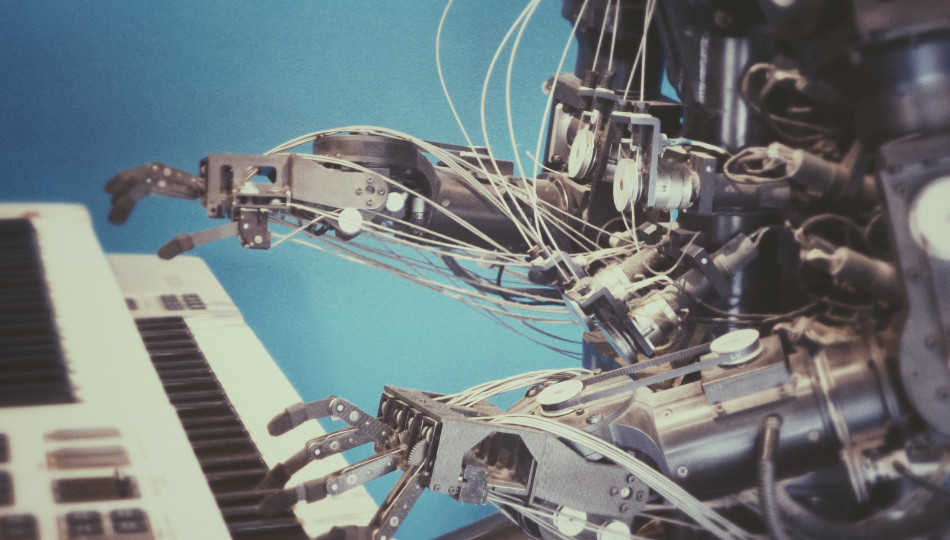Automation in the labor market. Who will lose a job and who will gain it?

Redaktor Naczelna

related articles
related offers
"According to data from a recent report by the World Economic Forum, we can expect 83 million jobs to be eliminated over the next five years, and 69 million new jobs to be created." – Jowita Michalska, CEO, Digital University.
Creative artificial intelligence
Automation (from the Greek automatos, meaning “self-directed”) is a process that involves relieving or completely reducing human manual labor, as well as mental labor, using machines and devices that perform repetitive tasks automatically.
To date, the debate over the impact of artificial intelligence and automation on the future of work has yielded little in the way of specifics. Much of the public discourse on creative workplaces has focused on the potential risks. On the one hand, opinions began to emerge that certain occupations would soon cease to exist as a result of automation. On the other hand, both the inadequacy of AI-based solutions and the still significant role of humans in the labor market were noted.
Researchers point out that automation has its advantages – increased productivity, efficiency, and profits. So where does the truth lie? Who will automation take away from their jobs, and who will it give a chance at a new one?
According to the Harvard Business Review, artificial intelligence already has advanced capabilities in producing creative content used in the marketing industry. An enhanced version of the GPT-3 chatbot called Jasper can already create blogs, social media posts, web texts, sales emails, advertisements, and other types of customer-facing content. Major food manufacturers, including Heinz and Nestlé, have already used AI-generated content in advertising campaigns.
“The largest changes are expected in administrative positions and in security, manufacturing, and retail occupations. Office workers are expected to decline the fastest. These will primarily be record-keeping roles, administration, data entry workers, accounting, payroll, and secretaries and secretaries. Another large group is occupations related to customer service or complaints, which are already being replaced quite effectively by chatbots,” says Jowita Michalska, CEO, Digital University.
Opportunities and dangers
Some socio-professional groups that have already been affected by the development of technology have decided to speak out. We are talking, for example, about the strike of screenwriters and actors in Hollywood, which began on May 2, 2023, and concerned working conditions in the rapidly changing media market, where streaming platforms and artificial intelligence are beginning to dominate. Such initiatives may escalate in the future.
The film industry’s concern may also be justified by a study by Goldman Sachs, which reports that artificial intelligence will automate 26% of occupations in the arts, design, entertainment, media, and sports sectors. It could also impact the global economy, with estimates that GDP will increase by up to 7%.
Interestingly, despite the rapid technological development, companies are introducing automation into their operations at a slower pace than expected. In the 2023 Future of Jobs study, organizations declared that only 34% of all business-related tasks are currently being automated, with humans still responsible for the remaining 66%.
“According to data from a recent report by the World Economic Forum, over the next five years, we can expect 83 million jobs to be eliminated and 69 million new ones to be created. This will lead to a shrinkage of 14 million jobs in the global labor market. However, it is estimated that artificial intelligence and other technologies will be more responsible for the creation of new jobs, while economic issues such as inflation and supply shortages will be the biggest factor in job attrition” says Jowita Michalska.
The same publication said that over the next five years, the impact of most technologies on the job market will be positive. Big data analytics, climate change, environmental management technologies, and encryption and cybersecurity are expected to become the main drivers of job growth.
“Very quickly, there can be a parallel simultaneous of workers with skills taken up by technology and a shortage of workers with indispensable new skills, such as operating and programming automation systems, data analysis or technical troubleshooting,” adds Jowita Michalska.
Robo-advisers
Automation is playing an increasingly important role in the financial and banking sectors. Robotic process automation (RPA) enables routine tasks to be performed with precision, which can lead to increased efficiency and reduced operating costs. Processes such as data analysis, risk management, financial advisory and customer service are increasingly being supported by advanced systems based on artificial intelligence. Routine and repetitive tasks such as document processing, handling standard banking operations and cyclical analysis can be completely automated.
As the financial sector changes under the influence of technology, there is a demand for data analysis specialists, artificial intelligence engineers, programmers working on developing advanced algorithms and cyber security experts. Companies are looking for people who can harness the potential of new technologies to improve efficiency and develop innovative solutions.
“There will certainly be automation of back-office processes, such as accounting, billing, and reporting. This is already reducing costs and speeding up routine tasks. Virtual assistants and chatbots can answer common customer questions, handle simple transactions, and schedule appointments with advisors. This reduces the burden on employees and allows them to focus on more complex issues. Artificial intelligence also speeds up the decision-making process when reviewing credit and insurance applications. Automated investment advice using robo-advisors to help customers select financial products and big data analytics, which is a support in the area of fraud detection and money laundering, are also being developed intensively” says Jowita Michalska.
Competencies of the future
The growth of automation will foster the creation of new jobs that will be based on creating, operating and maintaining new technologies. Retraining employees will become crucial, as it will help them adapt to changing requirements and changes in the labor market.
In contrast, the Future of Jobs report states that 6 in 10 workers will require adequate training by 2027, but it is believed that only half of workers currently have access to adequate training opportunities. The highest training priority between 2023 and 2027 is analytical thinking, which accounts for an average of 10% of training initiatives. The second highest priority for employee development is promoting creative thinking, which will be the subject of 8% of skill enhancement initiatives. Training employees in the use of artificial intelligence came in third place.
“Robotization of certain processes, such as customer service, can lead to job cuts for low-skilled workers. So retraining programs are needed to help these people find new employment or develop additional skills. Fintech solutions and automated investment advice can exacerbate the financial exclusion of those with lower incomes or less digital education. That's why it's important to design them inclusively and provide the necessary education in this area," adds Jowita Michalska.
While it is inevitable that certain positions may be reduced or significantly changed, at the same time new career opportunities are opening up for those with the right skills. The key is to adapt to the changing realities by learning new competencies and being able to exploit the potential of new technologies. It is worth emphasizing that the automation process is not only a challenge but also an opportunity to develop and create innovative solutions in the dynamic environment of finance and banking.
“There is no profession in which we can guarantee that in 50 years it will have the same shape as today. Instead, it's worth considering your competencies and finding a niche that suits them. This may prove more effective or easier than trying to retrain in a direction that is incompatible with our individual resources. Certainly, however, knowledge of technology will be essential in most professions," Jowita Michalska concludes.
Automation is everywhere, and while it naturally raises some concerns, looking from the perspective of a career in finance, automation is all about new opportunities – for us and our organizations. At the very least, it's an end to monotonous and reproductive work, and as a result, more time for professional development. I believe that staying open to change will only unlock our potential.
Our Expert:
 Jowita Michalska, CEO of Digital Univerity
Jowita Michalska, CEO of Digital Univerity
Sources:
„Automatyzacja”, Encyklopedia Zarządzania.
“How Generative AI Is Changing Creative Work”, Harvard Business Review, 2022.
“The Potentially Large Effects of Artificial Intelligence on Economic Growth -(Briggs/Kodnani)”, Goldman Sachs, 2023.
“Future of Jobs Report”, World Economic Forum, 2023.
“People Trends”, hrlink.pl, 2026.
This article is a translation of a piece published in:












